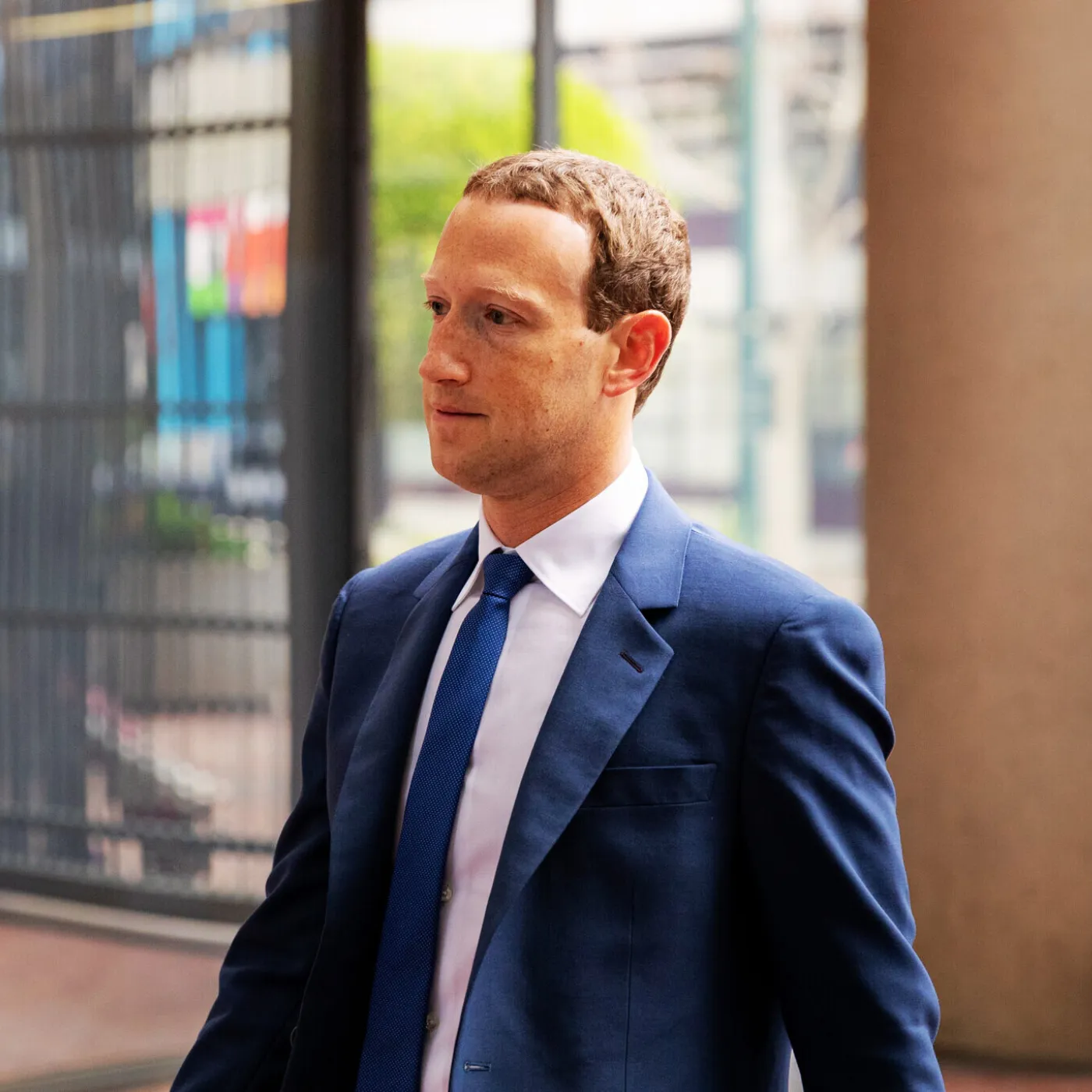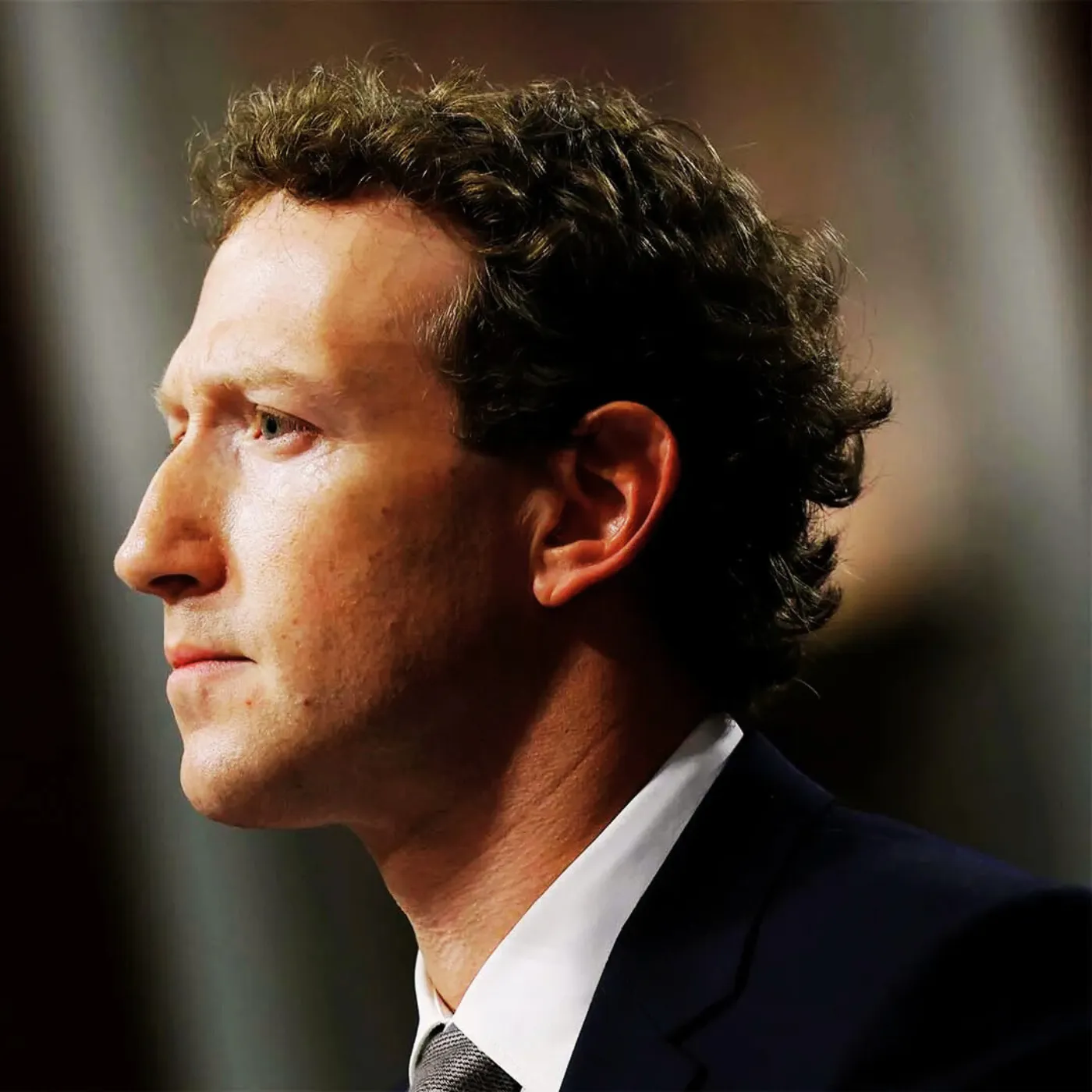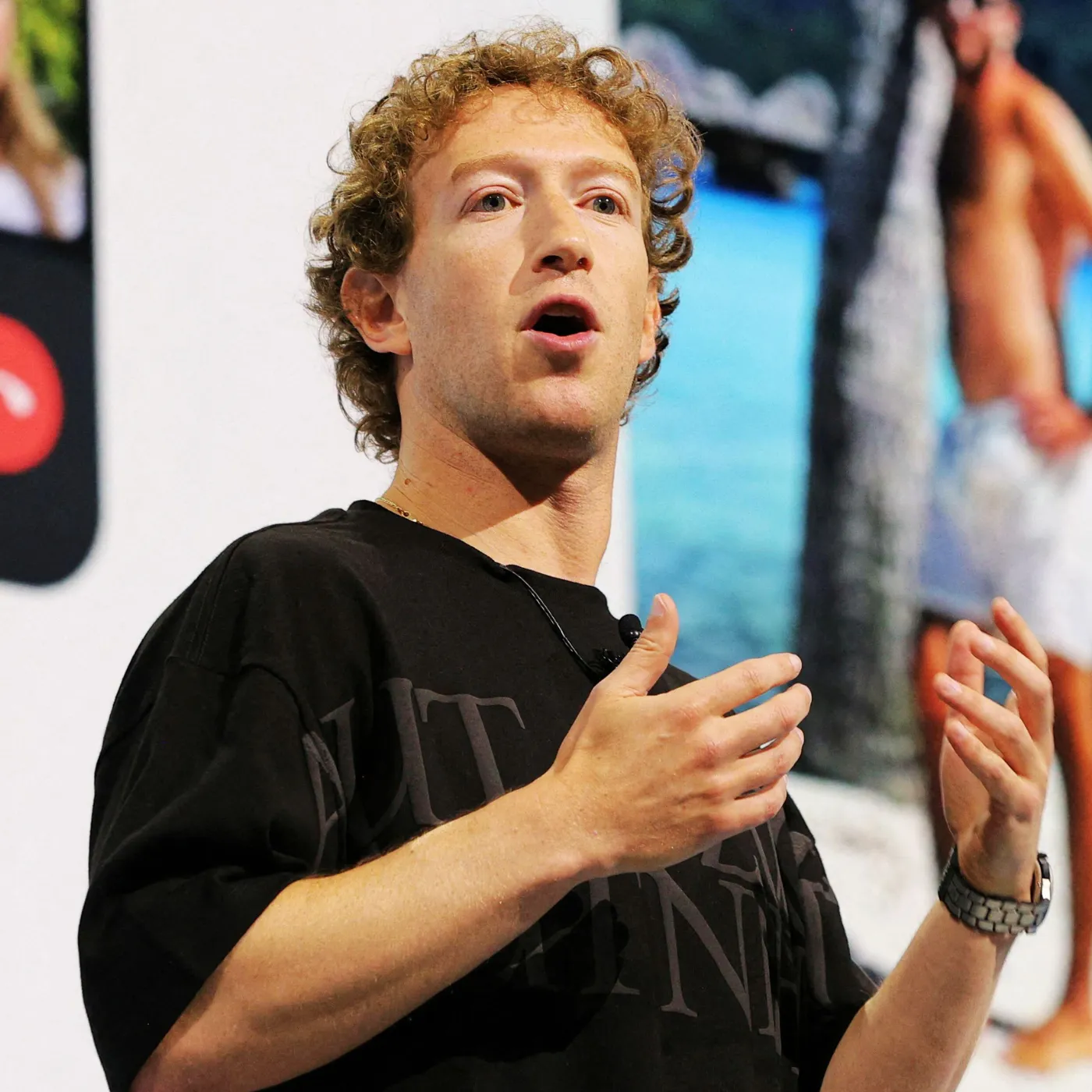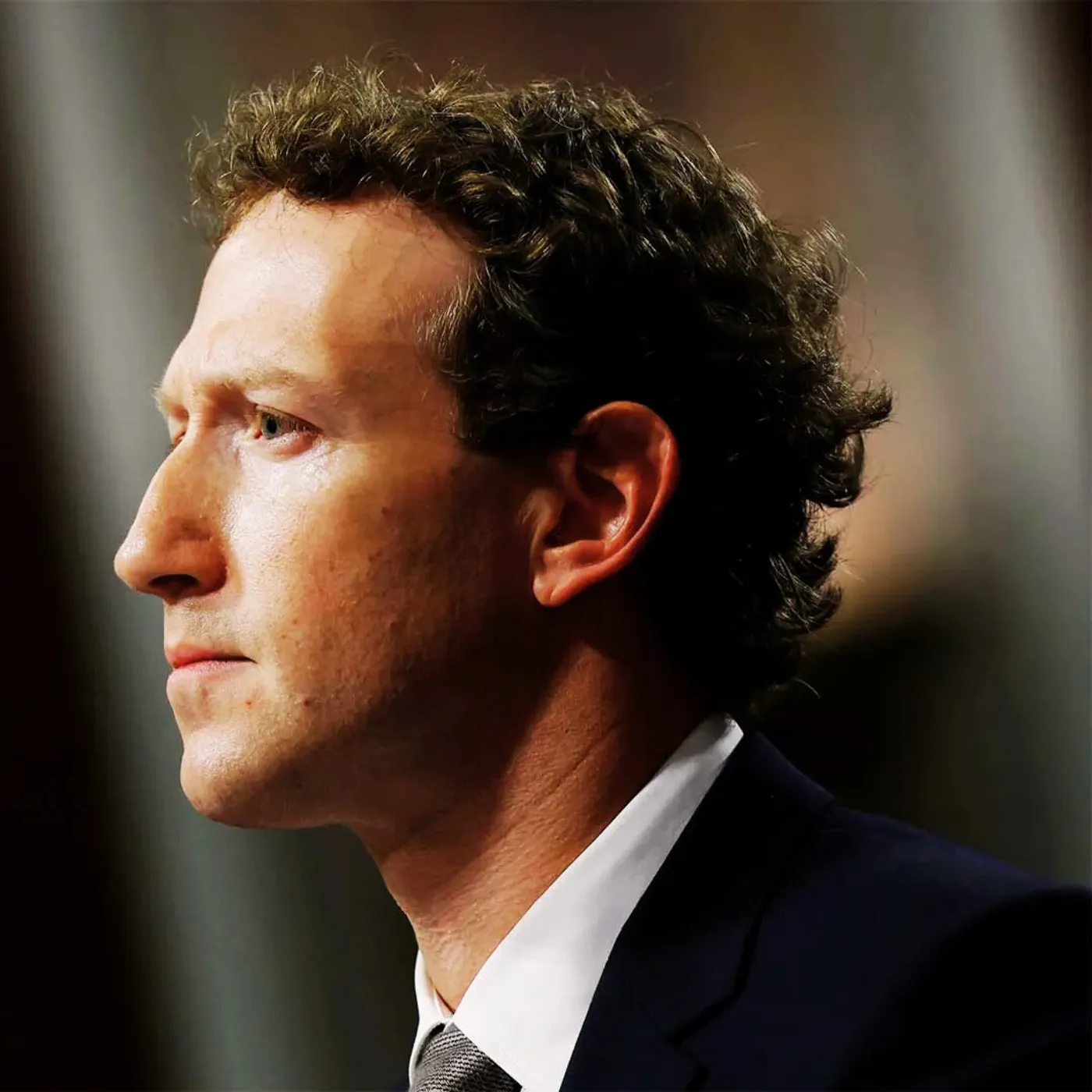Mark Zuckerberg’s Bold Move: The Antitrust Case That Could Redefine Facebook
In the ever-changing world of social media, few names are as synonymous with the rise and potential fall of the industry as Mark Zuckerberg. As the CEO of Meta (formerly Facebook), Zuckerberg has seen his platform evolve from a college networking site to the global powerhouse it is today, touching billions of lives in every corner of the globe. But as we move further into the 2020s, Facebook has begun to show signs of slowing down. Usage numbers are declining, user engagement is dropping, and the company has faced increasing criticism and scrutiny. Now, in the middle of a high-profile antitrust case, a shocking detail has emerged: Mark Zuckerberg had a ‘crazy idea’ to save Facebook’s inevitable decline. This bold move, revealed in the antitrust trial, could change the course of Meta’s future and possibly reshape the social media landscape as we know it.

The Struggle: Facebook’s Decline and Zuckerberg’s Response
Facebook, once the undisputed leader in social media, has been struggling to maintain its dominance in recent years. Younger generations have increasingly turned to platforms like TikTok and Snapchat, while Facebook’s aging user base is slowly but surely losing interest. In response, Mark Zuckerberg has worked tirelessly to diversify Meta’s offerings. From acquiring Instagram to developing WhatsApp and investing in the future of the Metaverse, Zuckerberg’s vision for the company has always been expansive. However, the reality of the digital landscape is much harsher than many anticipated. Facebook’s core platform is stagnating, and Zuckerberg’s attempts to revitalize it have met with mixed results.
The tech mogul is no stranger to controversy, but the current legal battle surrounding Meta has added fuel to the fire. In a landmark antitrust trial, Zuckerberg’s “crazy idea” was revealed, shedding light on the internal decisions that may have led to Facebook’s current predicament. The revelation? Zuckerberg considered an extreme measure to secure Facebook’s future: the idea of “remaking” the social media landscape by purchasing the competition. While not the first time such a strategy has been proposed, this particular move raised eyebrows due to the scale and audacity of the proposal.
The Antitrust Case: How Zuckerberg’s Radical Plan Came to Light
The ongoing antitrust case against Meta has put Zuckerberg in the spotlight, forcing the company to defend its practices in the face of growing scrutiny. The case revolves around Meta’s acquisitions of Instagram and WhatsApp, which critics argue were part of a calculated strategy to crush competitors and maintain Facebook’s monopoly over the social media space.
During the trial, Zuckerberg’s testimony revealed an interesting development: in an attempt to save Facebook from its stagnation, he considered acquiring competitors like Snapchat and TikTok. This revelation is more than just a business decision—it’s a glimpse into the desperation Zuckerberg may have felt as Facebook’s decline became inevitable. His “crazy idea” was to absorb any and all competition in an effort to retain Facebook’s place at the top.
At the time of these potential acquisitions, Facebook’s growth had already started to plateau, and Zuckerberg saw an opportunity to either eliminate competition or consolidate it within the Meta umbrella. While the antitrust case focuses primarily on Facebook’s past acquisitions, this new information casts doubt on Zuckerberg’s leadership. Was this an act of brilliance or a reckless decision driven by desperation? The jury is still out.

Zuckerberg’s Vision for the Future: A Meta of All Things Social
While Zuckerberg’s “crazy idea” may seem far-fetched to some, it highlights a critical aspect of his leadership: a relentless drive to expand and reshape the digital landscape. Over the years, Zuckerberg has acquired Instagram and WhatsApp, two of the most successful social platforms, in an attempt to adapt to changing user preferences. His focus on the Metaverse is another example of his forward-thinking mentality, albeit one that many critics argue is misguided. Still, Zuckerberg’s vision for Meta continues to push boundaries, but it has come at a cost.
The idea of acquiring competitors like Snapchat and TikTok is not entirely out of the realm of possibility. In fact, some industry insiders have speculated that the next phase of Facebook’s evolution could involve acquiring more companies to create a digital ecosystem that dominates every aspect of our online lives. But this “win at all costs” mentality has come under intense scrutiny, especially in light of the recent antitrust case. Meta’s expansion strategy could be seen as anti-competitive, with Zuckerberg’s desire to own the market creating a stifling effect on innovation.
One thing is clear: Zuckerberg’s “crazy idea” was a bold attempt to solve a deep-rooted issue. But the execution, as evidenced by the antitrust trial, has raised questions about his long-term strategy and the sustainability of Meta’s business model.
The Cost of Success: Innovation vs. Monopolization
Meta’s dominance in social media has come with its fair share of benefits, but it has also created significant challenges. Facebook, Instagram, and WhatsApp are all massive platforms that have revolutionized the way we interact online. However, in Zuckerberg’s quest to own the digital landscape, Meta has been accused of monopolizing the market and stifling innovation. Critics argue that instead of fostering competition, Zuckerberg’s acquisitions have eliminated the need for innovation, creating a tech giant that operates with little competition.
The antitrust case serves as a cautionary tale for tech companies that prioritize dominance over healthy competition. While Meta’s growth has been undeniably impressive, the company has raised serious concerns about the consequences of unchecked power. Zuckerberg’s “crazy idea” to acquire competitors could have been seen as a last-ditch effort to keep the company afloat. But it also opens up a broader conversation about the ethics of monopolization and the importance of fostering competition in the tech industry.
This trial is a turning point for Meta, and it has sparked conversations about the future of social media and the role of big tech in our daily lives. Will Zuckerberg’s vision ultimately be vindicated, or will this antitrust case be the beginning of a larger reckoning for the tech industry as a whole?
Meta’s Future: What Lies Ahead for Facebook and Zuckerberg
The question that looms large as this antitrust case continues to unfold is: what does the future hold for Meta and its founder Mark Zuckerberg? Facebook’s core platform is on the decline, and while Instagram and WhatsApp have shown growth, Meta is still heavily reliant on its flagship product. If Zuckerberg’s radical strategy to buy up competitors had been successful, it might have ensured Facebook’s dominance for years to come. But in today’s fast-paced digital world, can such a strategy guarantee long-term success?
The rise of platforms like TikTok, coupled with increased competition from newer social media networks, suggests that the future may not belong to Meta. Even with Zuckerberg’s bold ideas and forward-thinking approach, the battle for dominance in the digital world is far from over. In fact, it may just be beginning.
Zuckerberg’s ‘crazy idea’ may have been a desperate attempt to save Facebook’s future, but it also reflects the growing challenges that Meta faces as it tries to remain relevant in a rapidly changing digital landscape. The outcome of the antitrust trial will likely have significant consequences for both Zuckerberg and Meta, determining whether their monopolistic strategies can continue to thrive or whether new regulations and market forces will push the company to adapt.

Mark Zuckerberg’s Vision or Meta’s Downfall?
Mark Zuckerberg’s “crazy idea” to save Facebook is a fascinating glimpse into the mind of a tech titan who is unafraid to take risks. However, the revelation of his bold strategies also raises critical questions about the long-term health of Meta and the ethics of monopolistic behavior in the tech industry. As Facebook faces increased competition, declining user engagement, and mounting scrutiny from regulators, Zuckerberg’s leadership and vision for the company are now under intense examination.
While his radical ideas may have sparked innovation and reshaped the digital landscape in the past, the antitrust case highlights the dangers of unchecked power. As Zuckerberg defends his strategy in court, the world will be watching to see whether his vision for Meta will secure the company’s future or contribute to its eventual downfall. The trial is far from over, but one thing is certain: the future of social media will be shaped by the outcome.
Meta’s next chapter is uncertain, but it is clear that Zuckerberg’s “crazy idea” may be the last gamble in a high-stakes game that will determine the future of the digital world. The question remains: will it be enough to save Facebook, or is it already too late?




Post Comment